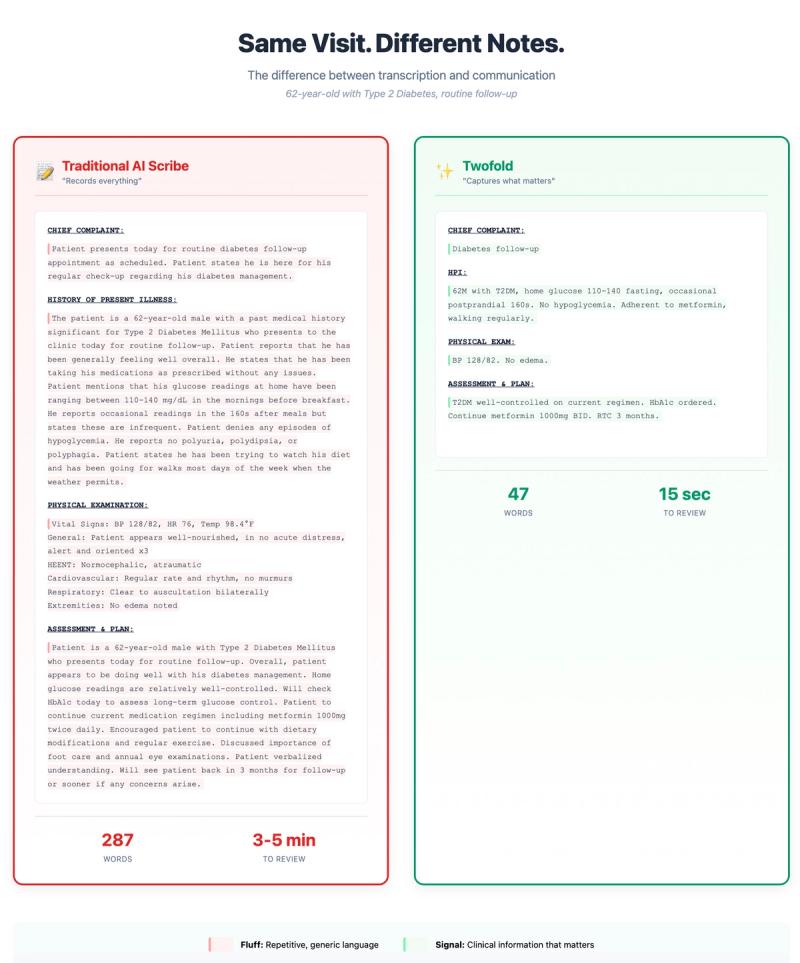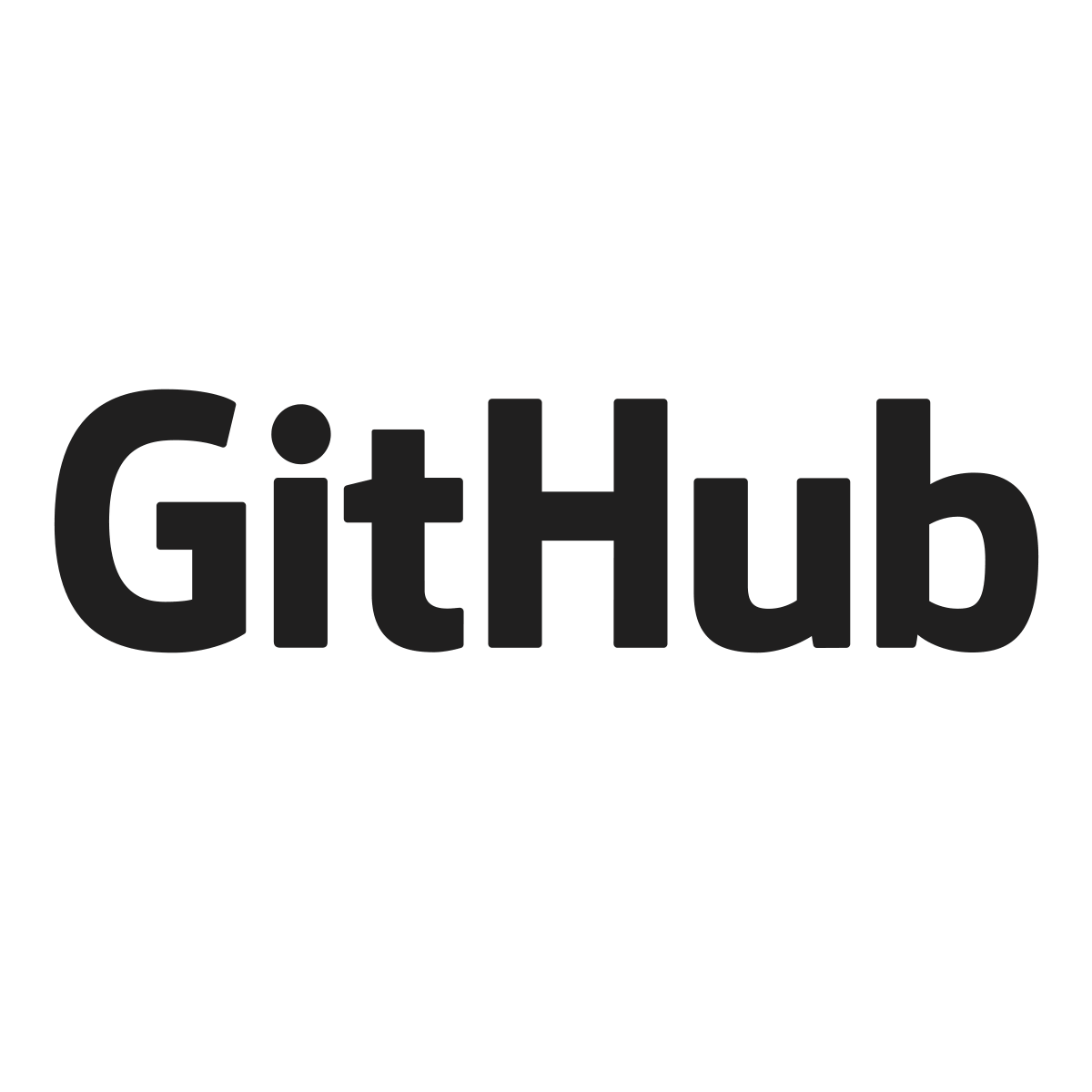Three years ago, I watched my brother Danni come home at 11:47 PM.
He's a pediatrician who's spent years caring for kids and mentoring young doctors. That night, none of it seemed to matter. His daughter was asleep. His wife had stopped waiting up. He was exhausted, still in his scrubs, with fourteen charts left to finish before morning.
"I'll be up late," he said.
I asked if he remembered the patients from that morning. He paused.
"Not really. But I can tell you exactly which dropdown menus I need to complete before the system lets me close their files."
That moment changed everything. We were automating the wrong thing.
The Problem Nobody Talks About
Here's what physicians don't often say out loud. They spend more time documenting care than delivering it.
The numbers are brutal:
- Two hours of EHR work for every one hour with patients
- Ninety minutes of "pajama time" every night at home
- 390 hours per year charting after hours
That's ten full work weeks annually. Unpaid. In your pajamas. While your family sleeps.
One physician said it perfectly: "I don't feel connected as I am always looking at the screen typing. The art of medicine is lost."
Another wrote: "I struggle to think of any other job where work invades home life so profoundly."
The First AI Scribes Made It Worse
When AI scribes first arrived, they promised liberation. They delivered something else: more work.
I spent months reading clinician forums. Here's what I found:
“My notes are fairly short and the AI‑generated ones have a lot of fluff. I copy and paste 70% of my note anyways.” — StudentDoctorNet Forum
“I would be leery of AI making things not sound like I intended. Spending a crap ton of time making sure they say CANNOT instead of CAN.” — Physician Assistant Forum
“Our Family Medicine providers thought it would be torture to read the AI note before seeing each patient. The notes were just too long.” — AC Users Forum
The AI listened to everything. It wrote everything down. It prioritized nothing.
Four‑paragraph summaries when two sentences would do. Clinical thinking buried in walls of text. Notes that looked thorough but read like noise.
Engineers built transcription machines. Clinicians needed communication tools.
Doctors became editors instead of healers. They traded one form of pajama time for another.
What Happens When You Actually Listen
That night with my brother stayed in my head.
I'm not a doctor, but I've built enough software to recognize when a system starts breaking the people it was meant to help. So I started talking to clinicians. Not just my brother. Hundreds of them.
I spent six months in clinics, medical practices, coffee shops, and online forums. I listened to physicians, therapists, and nurses describe the same exhaustion. The same stolen evenings. The same quiet grief that came from realizing care had turned into paperwork.
Then I spent another year building Twofold.
Not based on what I thought they needed. Based on what they told me they wanted.
- They didn't want more features. They wanted precision.
- They didn't want ambient listening. They wanted notes that sounded like they wrote them.
- They didn't want seventeen EHR integrations. They wanted to finish documentation before the patient left the room.
- They didn't want their audio stored anywhere. They wanted it deleted immediately.
That's Twofold. Built from those conversations.
The Technical Difference That Matters
A family medicine doctor in our beta said something that stuck with me:
"Other AI scribes treat documentation like a transcription problem. You treat it like a communication problem."
She was right. That's the difference.
Traditional AI scribes:
- Record everything said
- Generate long, generic notes
- Produce fluff and repetition
Twofold:
- Identifies what matters clinically
- Writes it the way clinicians think
- Produces concise, structured notes that are easy to review and trust

A two‑sentence HPI instead of six paragraphs. Focused findings instead of copied templates. Assessments that reflect reasoning, not repetition.
Concise notes aren't just faster to write. They're faster to read. Easier to act on. More useful for every provider who touches the chart after.
That isn't just an AI improvement. It's clinical design.
The big hospital systems had advanced tools that worked for their workflows. But outpatient clinics and smaller practices? They got stuck with the same bloated transcription machines that didn't fit how they actually work. We built Twofold specifically for the physicians in private practices and clinics who needed something that matched their reality.
Privacy Isn’t Optional
Early AI scribes stored recordings for weeks to "improve their models." The idea made clinicians uneasy for good reason.
One patient said it best:
“My biggest concern is data breach and privacy. If the physician doesn’t review their notes properly, people will literally die.” — Daily Telegraph
At Twofold, recordings are processed in real time, then deleted immediately. They're never stored, never archived, and never used for training. Clinicians stay in control of their data.
One of our users told me, "I was careful about AI and privacy. The BAA, consent flow, and easy deletion gave me peace of mind."
That's not a marketing promise. It's a boundary we refuse to cross.
What Medicine Gets Back
Three years later, thousands of clinicians use Twofold every day.
The feedback keeps us grounded:
- "I wrap up notes before the next patient. My afternoons feel calm for the first time in years."
- "I couldn't be happier with Twofold. It helped me move from part-time to full-time while keeping work-life balance."
- "I can actually close my laptop at the end of the day and not think about work."
When I read these, I don't think about AI. I think about time.
- Time to make eye contact.
- Time to explain the diagnosis.
- Time to hear what isn't being said.
- Time to leave work when work ends.
That's what we're giving back. The dignity of being a healer instead of a data clerk. The dignity of remembering why you chose medicine.
Why This Matters
My brother doesn't come home at 11:47 PM anymore. His burnout is gone.
The clinicians using Twofold aren't finishing charts after their families go to sleep. They're present again, at work and at home.
I didn't build Twofold to disrupt healthcare. I built it to restore it.
One note, one clinician, one evening at a time.
Because the future of medicine will not be defined by bigger algorithms or faster predictions.
It will be defined by how much humanity we can bring back into every patient encounter.
We gave doctors their nights back.
Now they're giving us the gift of being fully present when it matters most.
.png)





